Steel industry needs help in days not weeks, Kinnock says
- Published
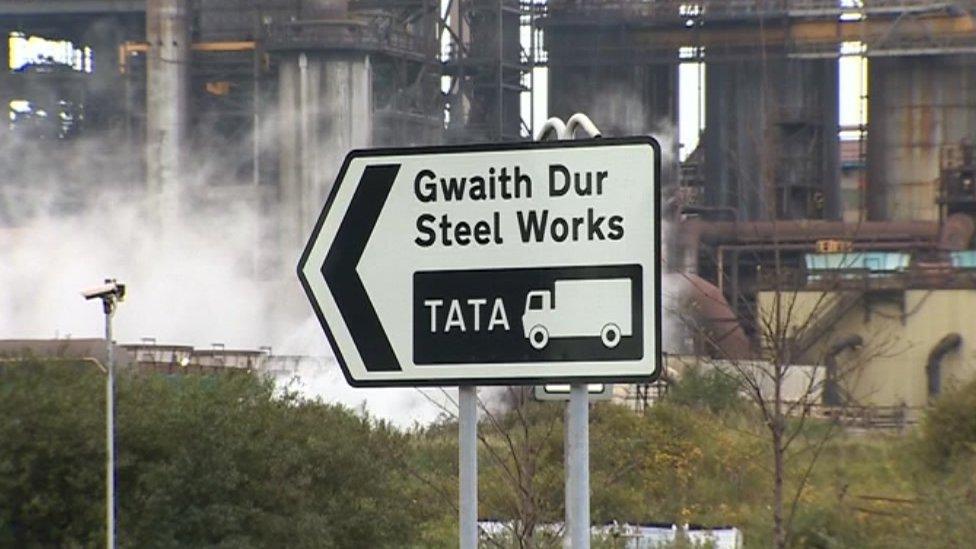
There can be no post-pandemic economic recovery without a strong and healthy steel industry, according to Labour MP Stephen Kinnock.
Opposition MPs are calling on the UK government to provide loans to steel firms experiencing a sudden drop in demand due to coronavirus.
It said it was "committed to supporting the sector's economic recovery".
Aberavon MP Mr Kinnock told BBC Politics Wales support was needed in "days not weeks" to help the industry.
In May, 10 Welsh MPs wrote to the chancellor asking for extra support for the sector during the pandemic.
As shops start reopening, and pressure builds on the government to outline its plans for the UK's economic recovery, big questions still remain about the part steel will play in the country's economic bounce back.
At Prime Minister's Questions on Wednesday, Newport East Labour MP Jessica Morden told Boris Johnson: "Plants like Tata's Llanwern and the Orb steel works - the only electrical steel plant in the UK - can play a key part in that recovery, but three months into this crisis and steel companies are still waiting for government liquidity support which is critical.
"Will the prime minister commit to address this now?"
Mr Johnson said ministers would do "everything they can" to maintain UK steel production, but no bailout has been promised yet.
Mr Kinnock said steel was the "backbone of our manufacturing sector".
"Nothing, really, can work in this country in terms of the manufacturing sector without steel," he said.
"Steel is in the offices we work in, the cars that we drive, the trains that we ride, even the cutlery that we eat our food with."
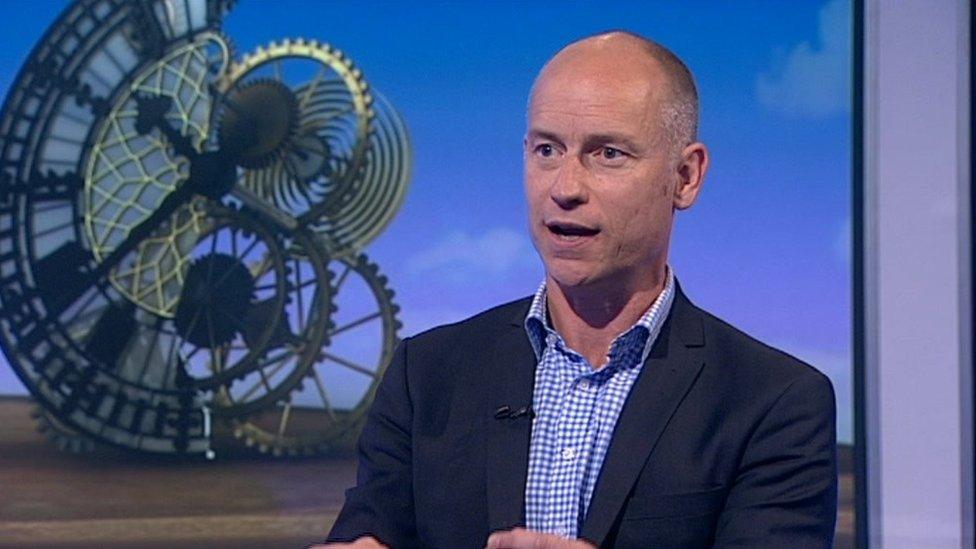
Stephen Kinnock: "Nothing, really, can work in this country in terms of the manufacturing sector without steel"
Demand for steel has dropped massively during the coronavirus crisis, especially with industries like car manufacturing grinding to a halt.
Before the pandemic, Tata Steel had suffered £371m in pre-tax losses last year and there was continuing uncertainty for the wider industry because of Brexit.
There have been reports the UK government may consider so-called "last resort" loans for viable companies, if their failure would disproportionately harm the economy.
But ministers will want some certainty any loans will be paid back to "protect" the taxpayer.
Mr Kinnock said he believed loans to steel firms would be returned and he has urged the government to consider the costs to the taxpayer of not stepping in to support them.
"We are urging the government to support the industry now and also think about the cost of doing nothing," he said.
"There are 4,000 relatively well paid men and women working in the Port Talbot steel works, thousands more relatively well paid jobs in the steel industry across the country.
"Imagine the cost of losing those jobs.
"Imagine the cost of decommissioning a steelworks with blast furnaces and the vast cost that would cause the government.
"So we are saying to the government - give the temporary loan.
"It is a loan that will be paid back in order to avoid the massive cost of doing nothing."
Steel industry analyst Dr Kathryn Ringwald-Wildman said the pandemic has hit firms at an already tough time.
"We've got uncertainty building on uncertainty," she said.
"The position of the steel industries is quite desperate at the moment and they will need government support to survive.
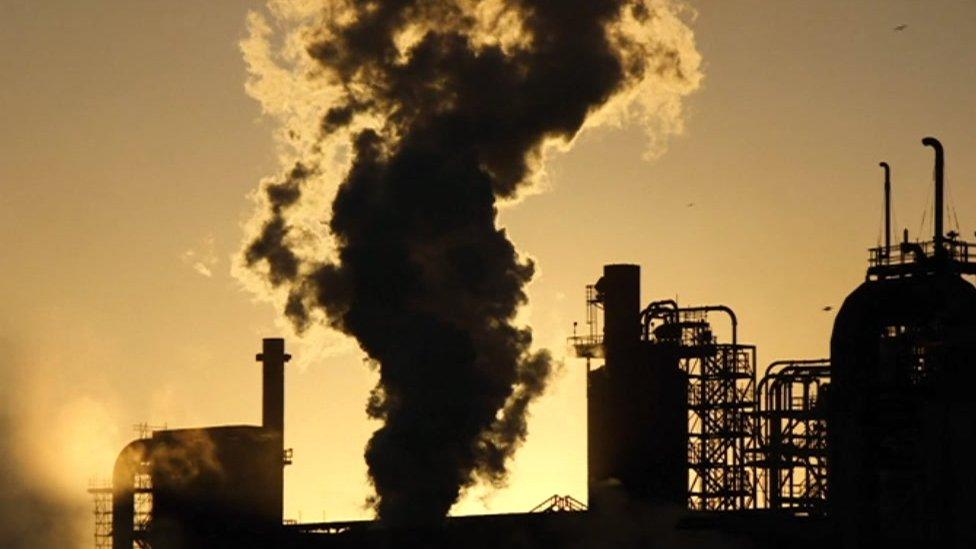
Tata's Port Talbot steelworks provide well-paid jobs in the area
"They would've needed government support without the pandemic.
"If they are to weather this particular storm they will need support.
"The question is: this is taxpayer's money. Is this a bridge over the pandemic crisis or is it a bridge over the pandemic crisis only to find the economic situation post-pandemic is much more serious globally than we might imagine?"
Beyond questions around the cost of recovery, with Tata Steel reportedly needing at least £500m through the pandemic, government decisions to support steel or not are inherently political - with the effect on areas like Port Talbot hanging in the mix.
"You take the steel industry out of Port Talbot you have got nothing. You haven't got anything to take its place," said Dr Ringwald-Wildman.
"The decision that's made now will resonate for many years.
"It may be that the politicians will decide to defer the decision to end steel manufacturing in the UK - let the companies sink or swim.
"They might choose to defer that because of the consequences down the line.
"It would take a very brave government to say we don't need a steel industry in the UK.
"The emphasis has been, in conversations around the edge of the Brexit decision, we will make our own steel, use our own steel, buy our own steel.
"We will, of course, be trading on the international market.
"But the notion that our domestic steel industry would be one of our major suppliers to our manufacturing industry was fundamental."
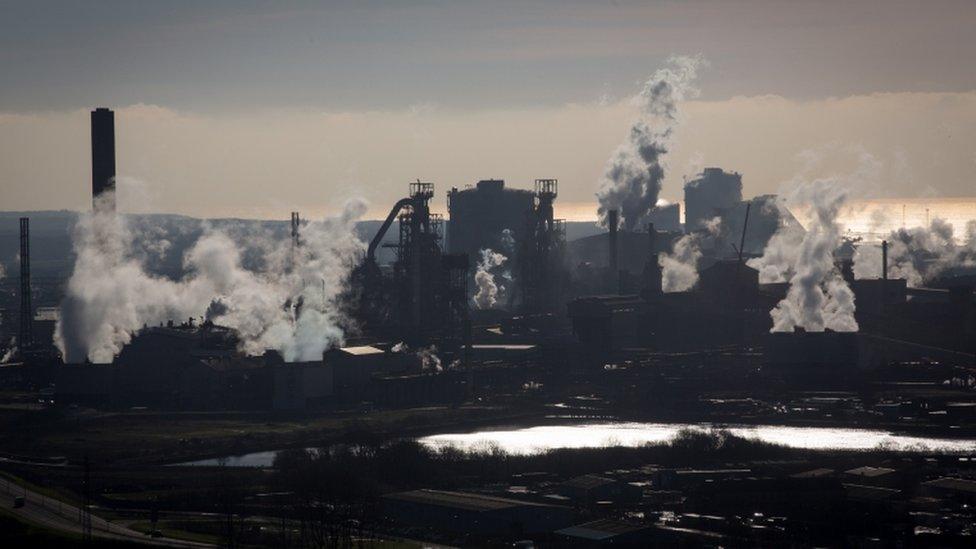
A spokesperson for Tata Steel, which has furloughed about 2,400 staff across UK sites, said: "The ultimate impact of coronavirus has been the sudden drop in demand for steel.
"But it is a storm that we are weathering, and we're looking to come out of the other side.
"We are in negotiations with both UK and Welsh governments to seek all available support that we can."
A UK government spokesperson said it has "engaged with businesses across the economy, and has already increased the scope and scale of many of our support schemes, including loans to steel companies with a turnover of over £45m".
"We recognise that economic conditions continue to be challenging and we are committed to supporting the sector's economic recovery."
BBC Politics Wales is on BBC One Wales on Sunday at 10:15 BST and iPlayer
- Published25 May 2020
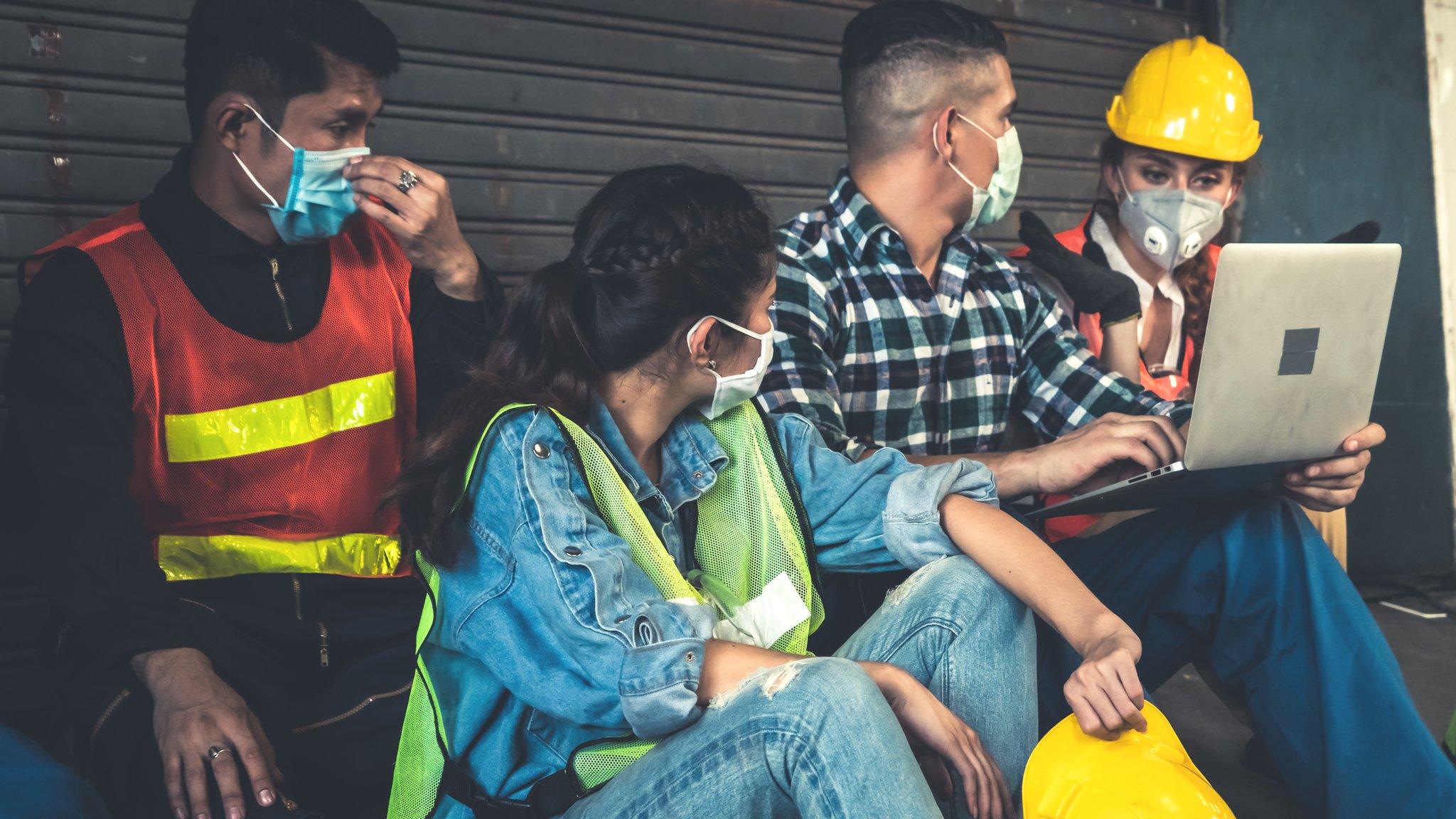
- Published1 May 2020
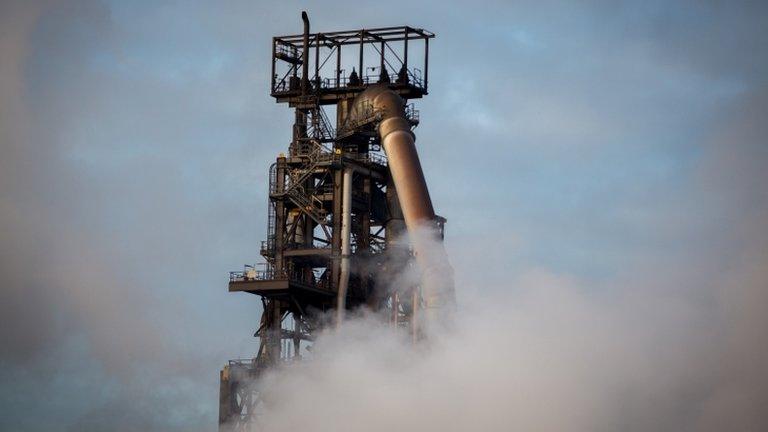
- Published25 April 2020
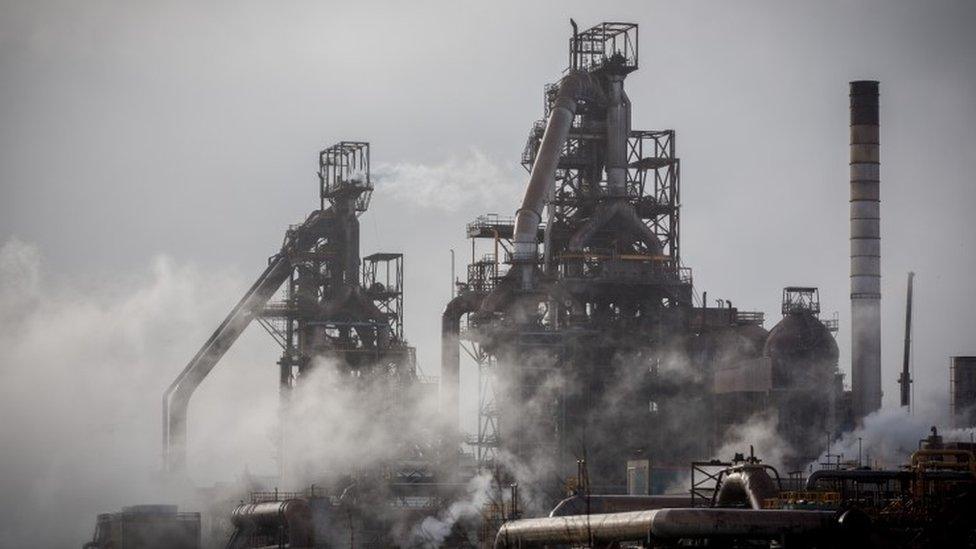
- Published5 January 2020
